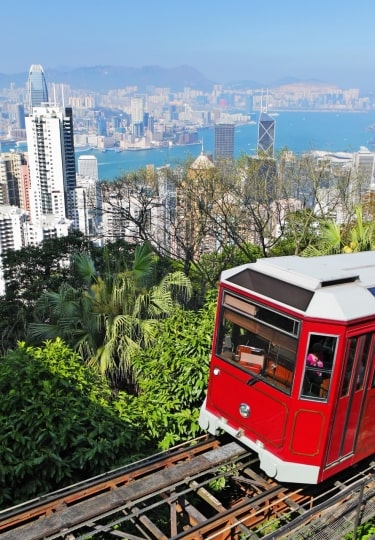The array of cultural and geographic diversity contained within the globe’s largest continent is nothing short of staggering.
Scale the heights of Victoria Peak in Hong Kong for panoramic views, or take to the streets of Penang in Malaysia or Hoi An in Vietnam for sizzling street food.
From the jaw-dropping geological formations of Halong Bay in Vietnam to the awe-inspiring facade of Angkor Wat in Cambodia, the breadth of sights and experiences here is wild.
Here are 14 of the best places to visit in Asia.
Ho Chi Minh City, Vietnam
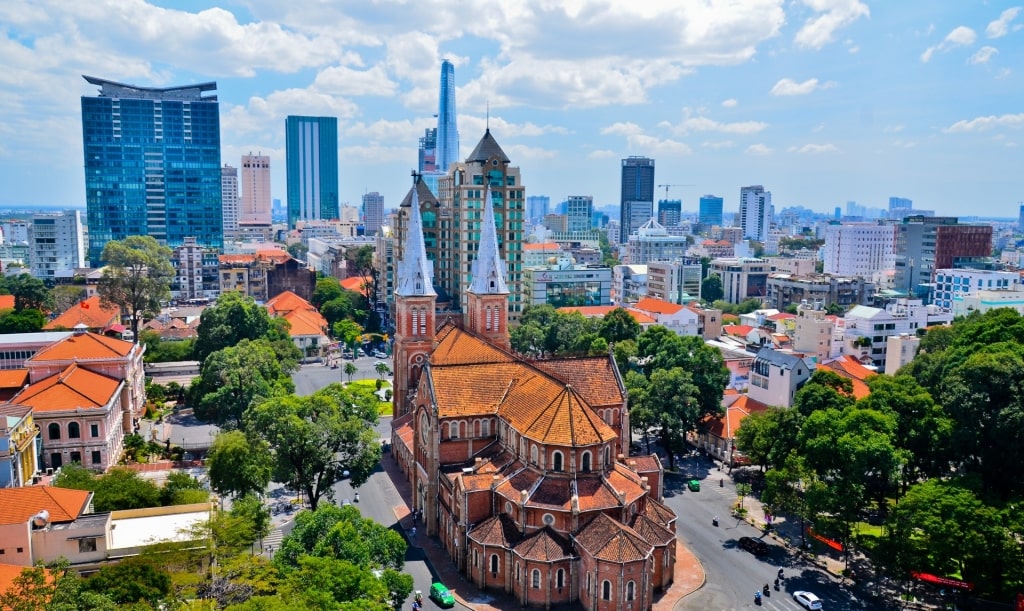
Ho Chi Minh City, Vietnam
Hanoi may be Vietnam’s official capital, but many would argue that its cultural and commercial gravitational center lies in this city to the south. The reality is that both cities have their own allure and merit multiple visits.
Ho Chi Minh City, or Saigon as it’s still frequently called, moves fast and knows how to have fun. From the street food, which Anthony Bourdain declared some of the best in the world, to the galleries showcasing local artists, to a thriving craft beer scene, there’s much to see and do here.
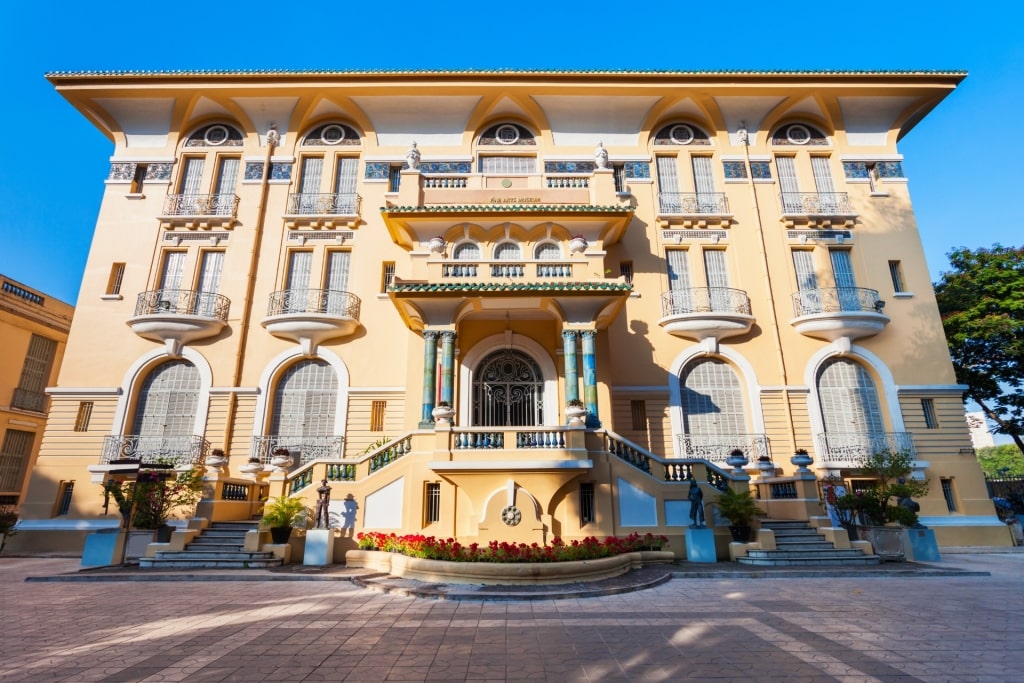
Ho Chi Minh Museum of Fine Arts in Ho Chi Minh City, Vietnam
Pay a visit to the War Remnants Museum, a thought-provoking and at times haunting examination of the legacy of the Vietnam War, or head to the Ho Chi Minh Museum of Fine Arts, housed in a gorgeous colonial villa.
Travelers with teens should check out the Artinus 3D Museum, which features enormous three-dimensional interactive murals.
Hong Kong
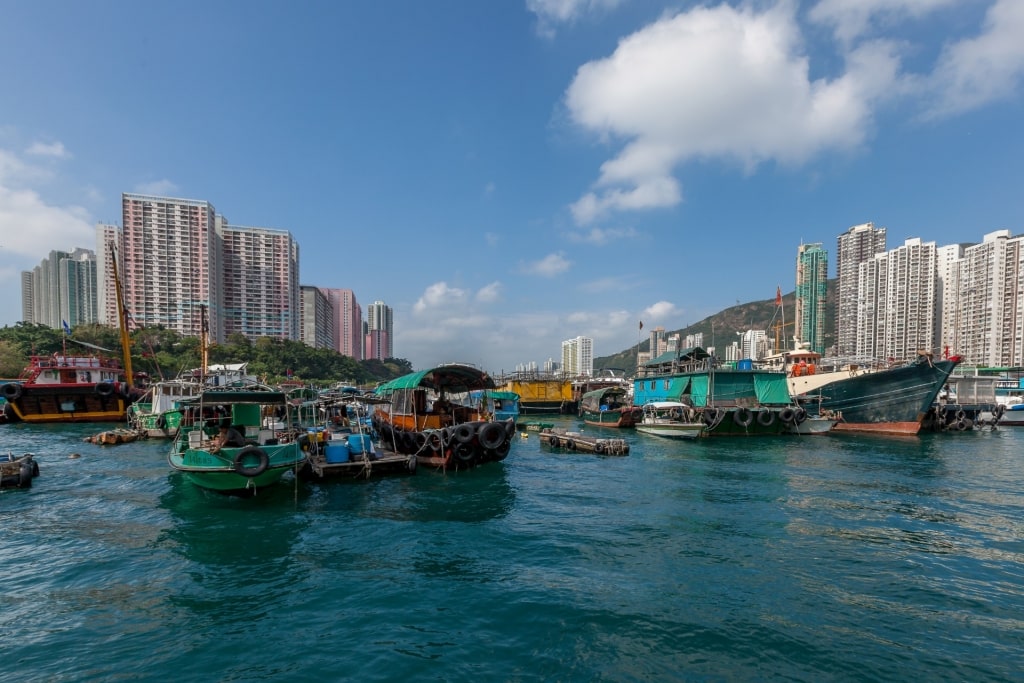
Hong Kong
One of the best places to visit in Asia, Hong Kong often feels like a city of contradictions. On the one hand, this concrete jungle is one of the most densely populated places on earth, with skyscrapers that soar well into the clouds. On the other, it contains unspoiled beaches and astonishingly lush rainforest.
Locals in Hong Kong love to take advantage of both sides; a typical Friday night might kick off with an after-work urban hike, followed by craft cocktails and a Michelin-starred dinner.
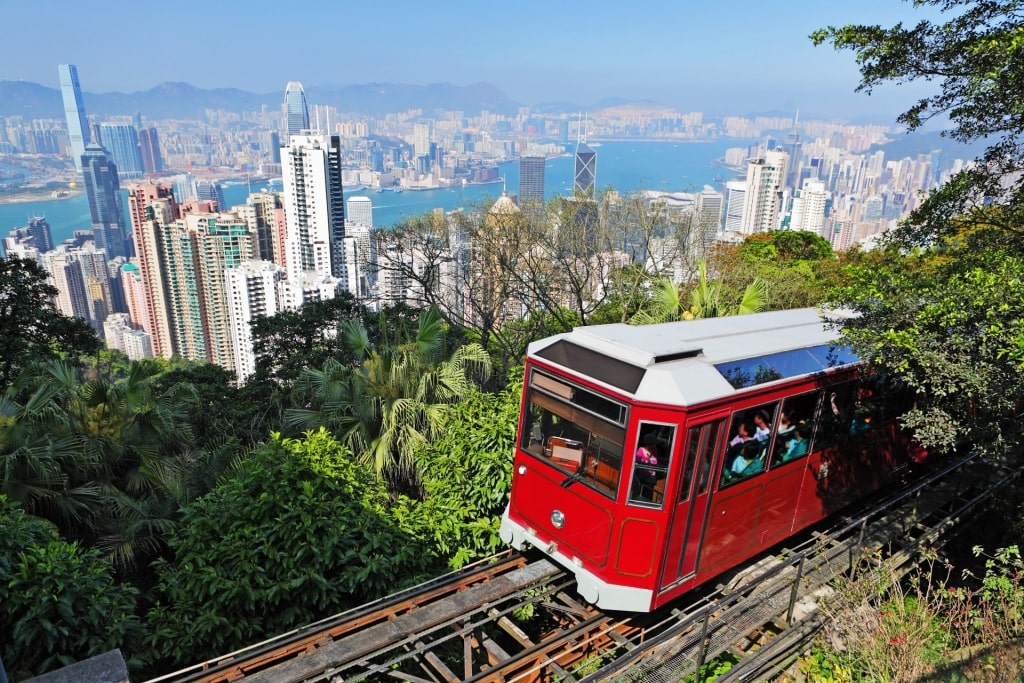
Victoria Peak, Hong Kong
To take it all in, either take the steep but extremely doable hike to the top of Victoria Peak, or hop aboard the Peak Tram for an easier ride to the top for a breathtaking view of one of the most modern cities in the world.
Read: 3 Days in Hong Kong
Hoi An, Vietnam
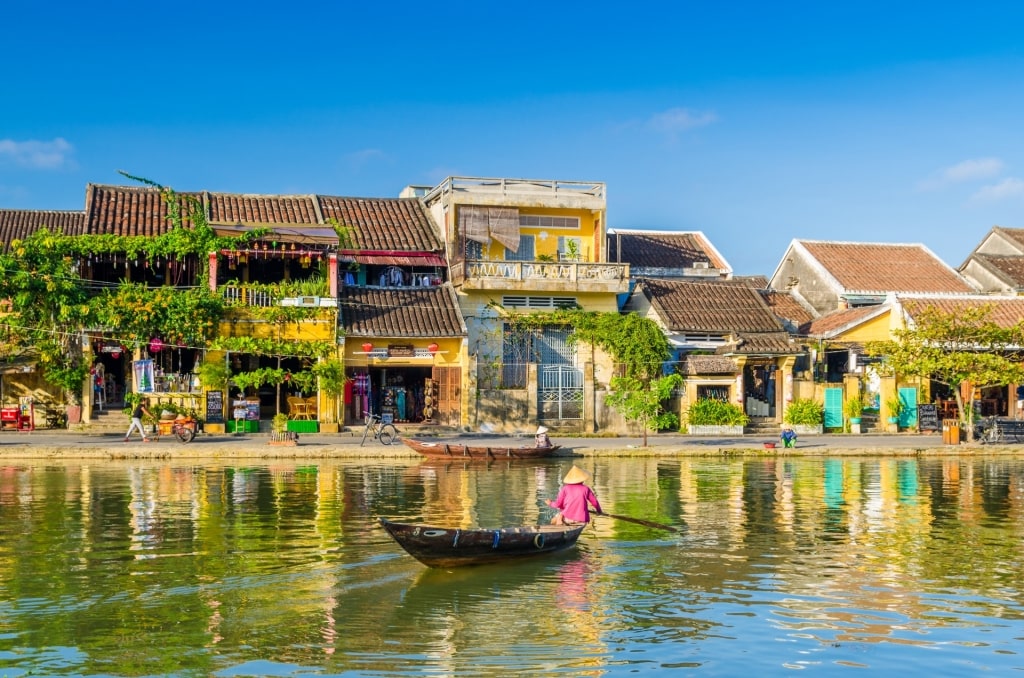
Hoi An, Vietnam
For more than 2,000 years, this coastal town near Danang was a pivotal trading port for the region. The steady influx of ships and the merchants who sailed them transformed Hoi An into a culturally, ethnically, and religiously diverse hub.
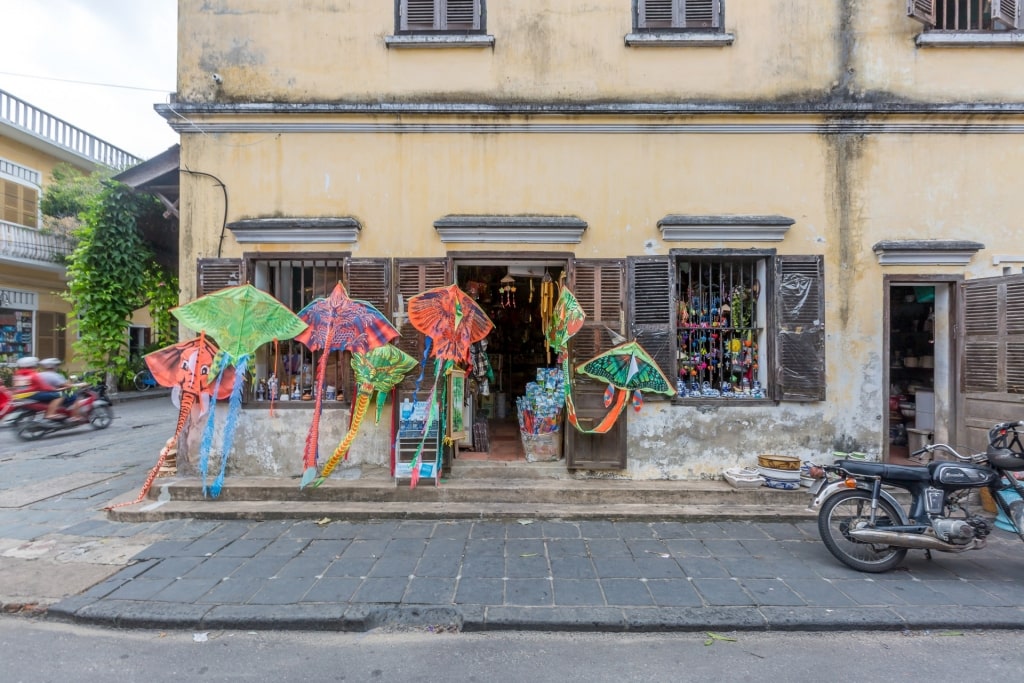
Hoi An, Vietnam
Today, wandering among the historic buildings in the UNESCO-protected town center is one of the best things to do in Vietnam as it feels like entering a time capsule. During the daytime, hop on a longtail boat or rent a bicycle to take in the sights around town.
Be sure to sample the street food, which includes Vietnamese specialties like cau lau, a hearty dish of thick, bouncy noodles topped with roast pork and cracklings. As the sun goes down, hundreds of paper lanterns light up the town and couples flock to the Japanese covered bridge to profess their love.
Tokyo, Japan
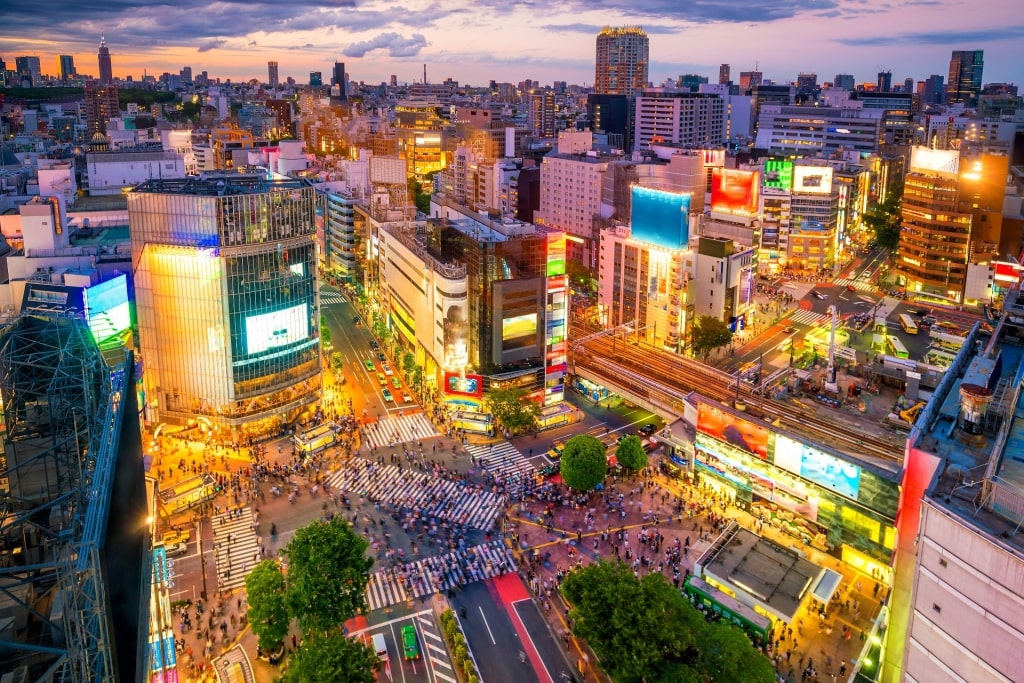
Shibuya Crossing in Tokyo, Japan
From the frenetic energy of Shibuya Crossing to the nightlife of Golden Gai, Tokyo hardly ever seems to slow down.
For a glimpse of a different, yet equally compelling side of this Japanese city, head to Asakusa, a series of eateries and shops that are especially popular with Japanese visitors on weekends.
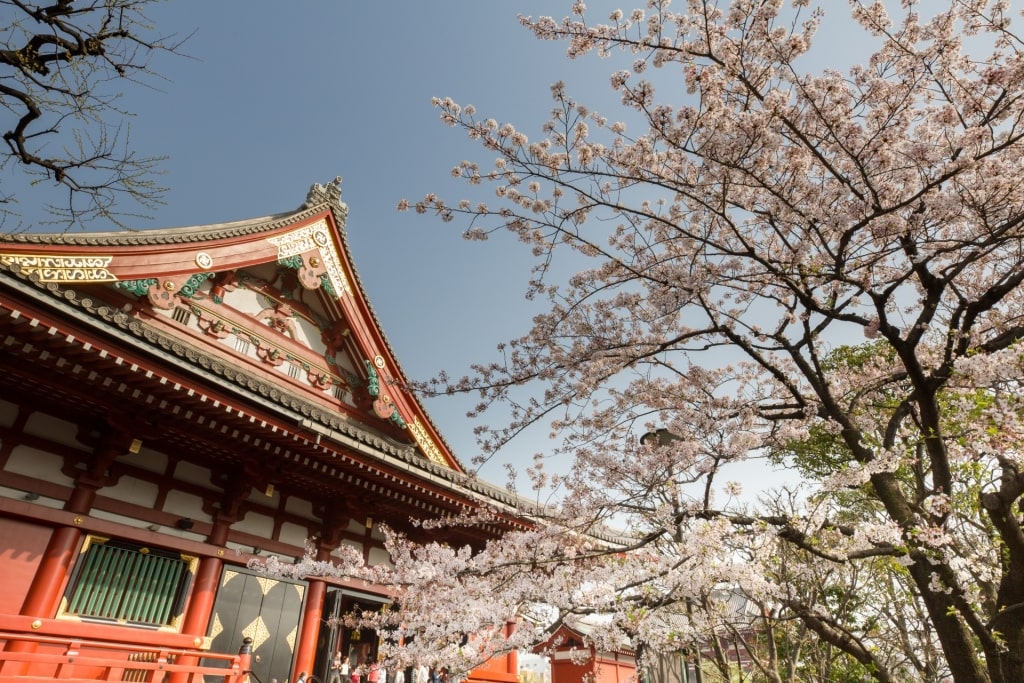
Sensoji Temple in Tokyo, Japan
The stately Sensoji Temple, with its scarlet-painted pillars and swooping pagoda rooftops, anchors the neighborhood in Tokyo. Don’t be surprised to see people decked out in their finest kimonos and yukata, particularly during cherry blossom season.
Halong Bay, Vietnam
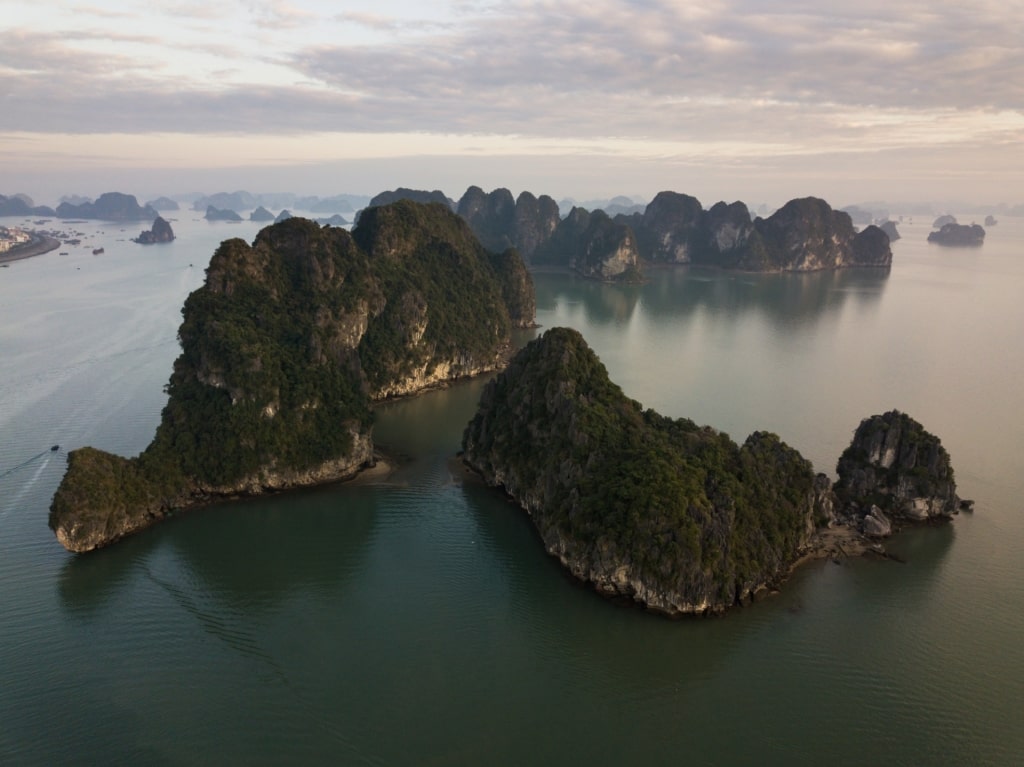
Halong Bay, Vietnam
With its striking limestone karsts towering above its glassy waters, the UNESCO World Heritage Site of Halong Bay has an otherworldly beauty that makes it one of the best places to visit in Vietnam.
Rainforest foliage drapes down the sides of these rocky islets, all of which bear fanciful names inspired by their unusual shapes.
Rock climbers may want to test their nerve by scaling the sides, while snorkelers and divers will find plenty to see below the jade surface of these waters. You could kayak between the islands, too, as well as visit floating villages or explore some of the best caves in the world.
Bangkok, Thailand
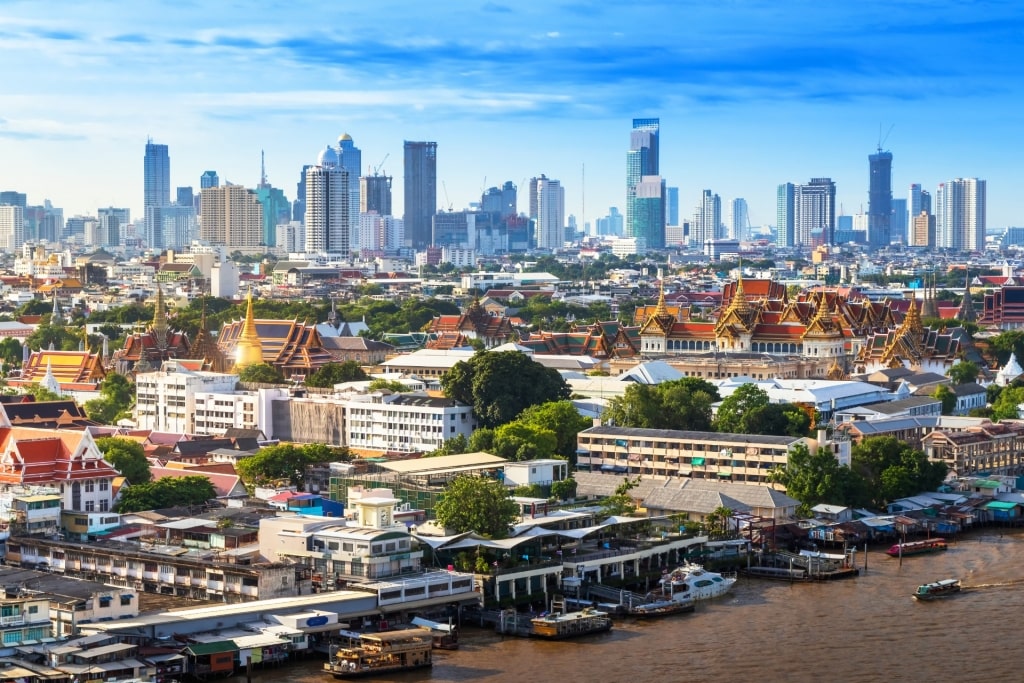
Bangkok, Thailand
The beating heart of both Thailand’s former capital, Ayutthaya, and its current one has always been the mighty Chao Phraya River. Centuries before the BTS Skytrain or traffic-choked highways appeared, life in Bangkok revolved around its waterways.
Even today, locals still traverse the city via the intricate network of klongs, or canals. In the past, these were also centers of commerce, where merchants and hawkers would rise before dawn to sell their wares by boat.
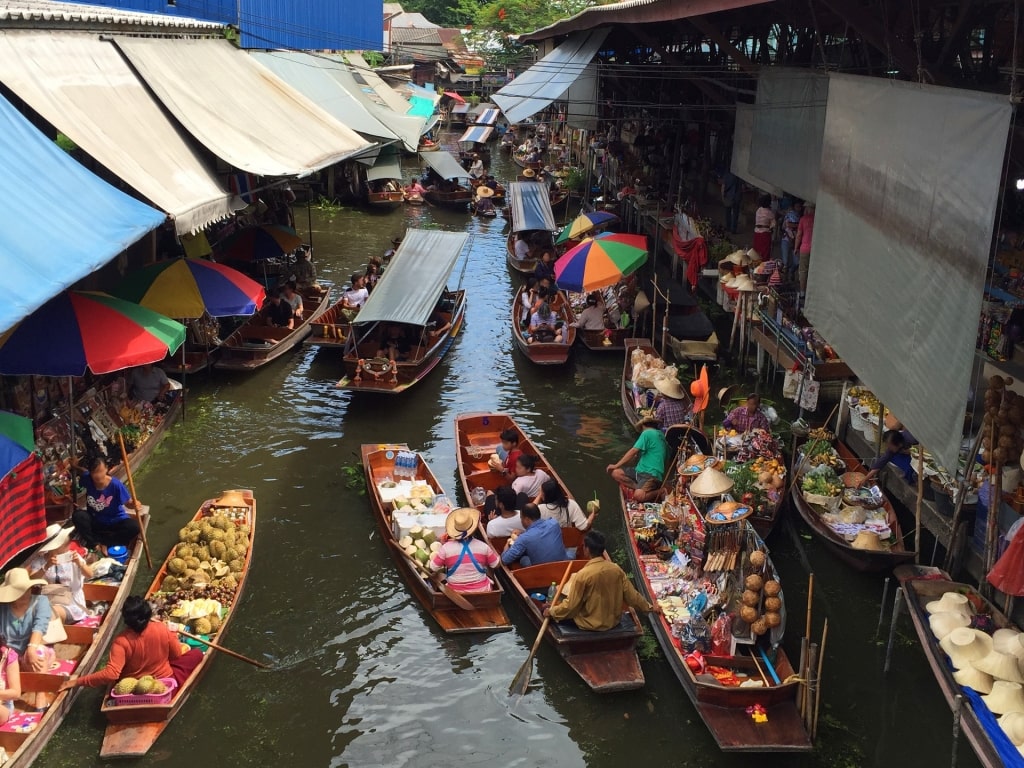
Damnoen Saduak Floating Market in Bangkok, Thailand
Today, Damnoen Saduak Floating Market offers a look at this bygone era, as well as a delicious array of local specialties. Everything from tropical fruits to bucketloads of flowers is crammed on to boats, buyers and sellers calling to each other across the water.
Read: Two Days in Bangkok
Kyoto, Japan
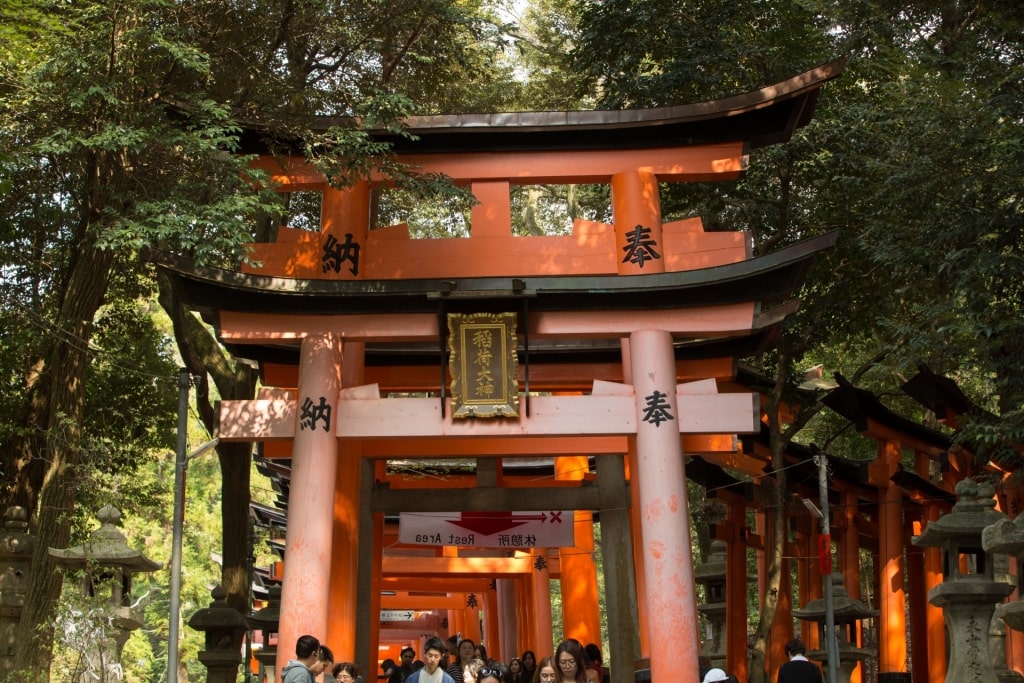
Fushimi Inari Shrine in Kyoto, Japan
With more than 400 shrines and 17 UNESCO World Heritage Sites, Japan’s former Imperial capital offers a wealth of cultural spaces that make it one of the best places to visit in Asia.
Kyoto’s most photographed religious site is Fushimi Inari Shrine, the Shinto shrine known for its rows of flame-hued torii gates and dense surrounding thickets of bamboo.
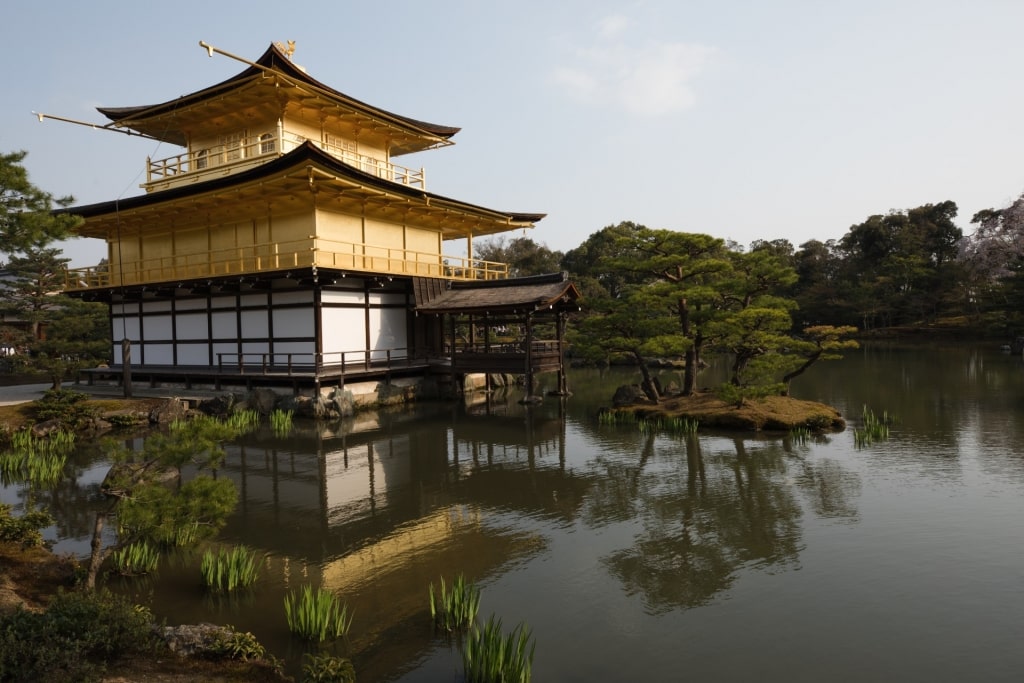
Kinkaku-ji in Kyoto, Japan
Kinkaku-ji, a magnificent Japanese temple reconstructed on an ancient sacred site in 1955, has two stories completely covered in gold leaf, all set imposingly over a lake.
Read: Best Things to Eat in Kyoto
Hanoi, Vietnam
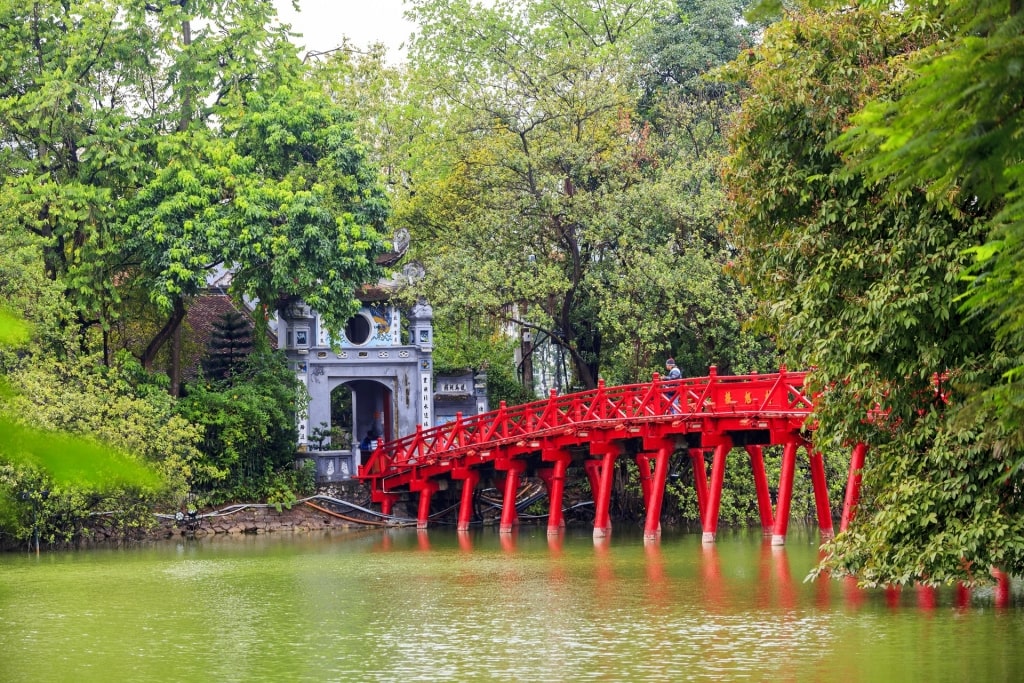
Old Quarter in Hanoi, Vietnam
The tangle of 36 streets that makes up Hanoi’s Old Quarter dates back nearly a millennia. Ever since the city became the country’s capital in 1010, master craftsmen have practiced their trades in this labyrinth by the shores of Hoan Kiem Lake.
On Hang Thiec Street, or “Tin Street,” sparks fly as metalsmiths churn out homewares. You’ll find tailors who can conjure up a bespoke gown or suit within a day on Hang Gai Street, or “Silk Street”.
On Hang Bac Street, or “Silver Street,” one-of-a-kind bangles and jewelry line the shops. This web of alleys is equally fantastic for people-watching and shopping for authentic Vietnamese souvenirs.
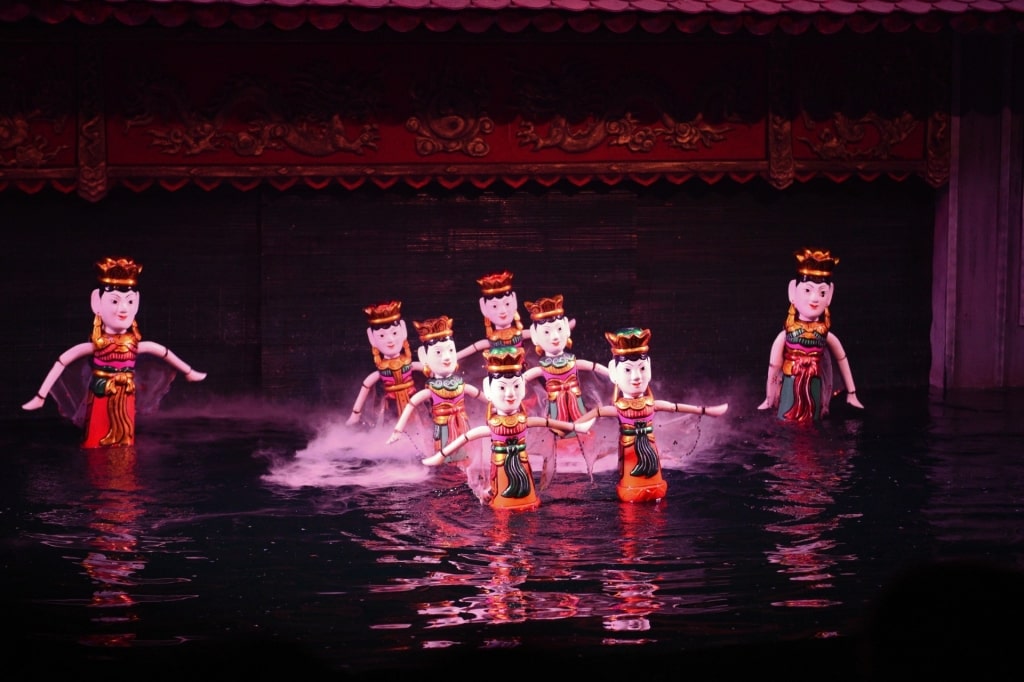
Thang Long Water Puppet Theater in Hanoi, Vietnam
While you’re in the neighborhood, be sure to check out sites such as the Bach Ma Temple and the Ngoc Son Temple.
For a truly memorable experience, one of the best things to do in Hanoi is to check out a show at the Thang Long Water Puppet Theater. It’s one of the few places to practice the ancient Vietnamese tradition of water puppetry.
Angkor Wat, Siem Reap, Cambodia
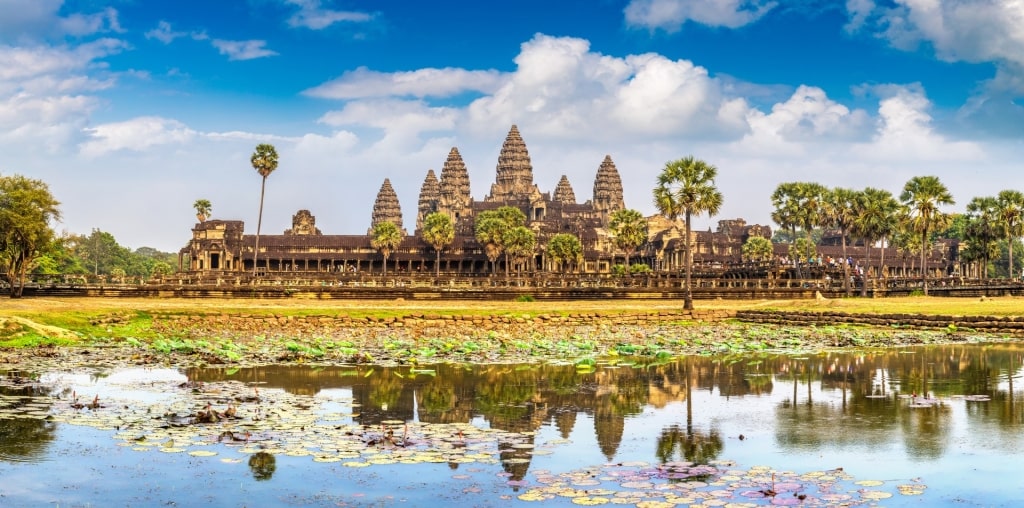
Angkor Wat in Siem Reap, Cambodia
Angkor Wat and the surrounding temples, a UNESCO World Heritage Site, is one of the most photographed places in the world. Tempting though it might be to write these crumbling relics of the Khmer empire off as a cliché, no glossy magazine pages or Instagram shots could ever do them justice.
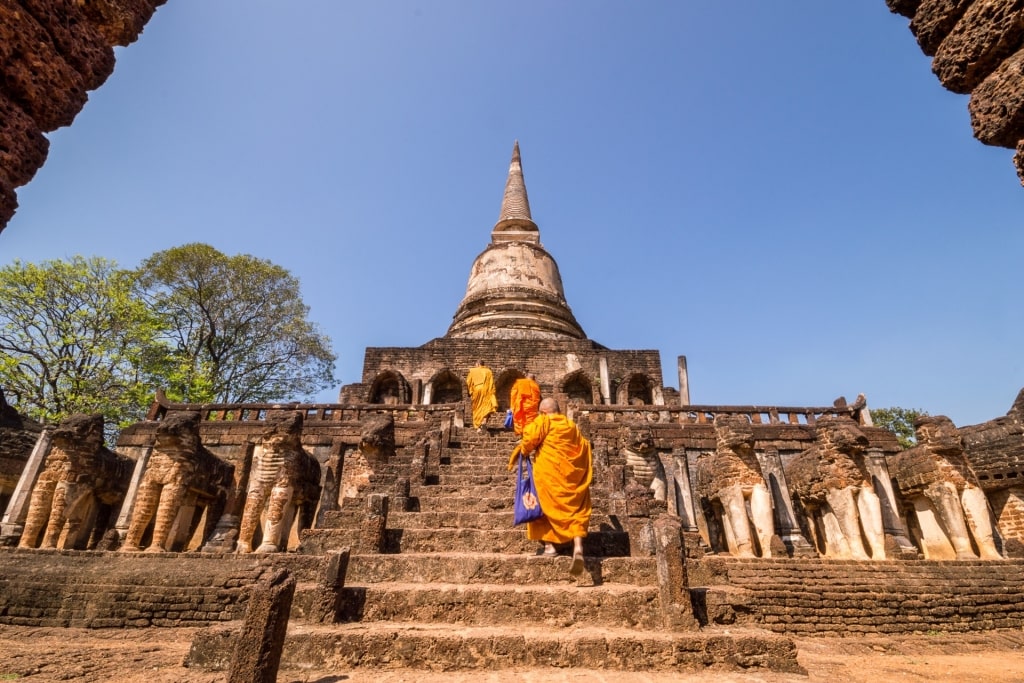
Angkor Wat in Siem Reap, Cambodia
It’s impossible to stand in their presence and not feel an almost otherworldly sense of awe, particularly as some temples have been overrun by jungle, giving them an almost organic feel.
To truly appreciate the history contained within Angkor Archaeological Park, it’s worth hiring a guide. Go at sunrise, when the temples are bathed in golden light, or watch the sun go down from a hilltop vantage point.
Harajuku, Tokyo, Japan
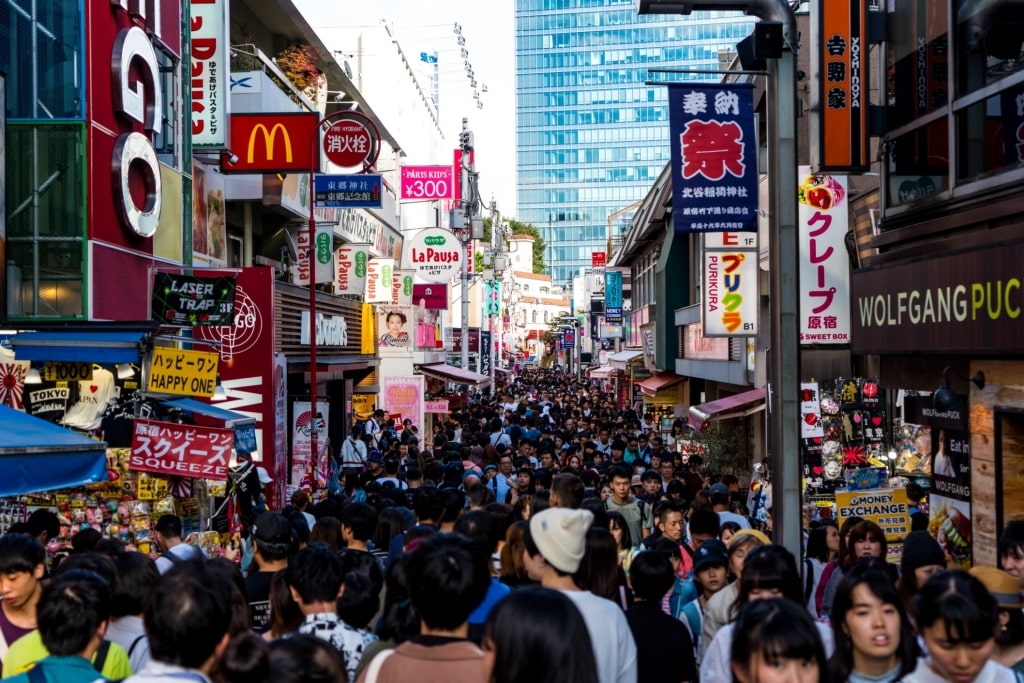
Harajuku in Tokyo, Japan Photo by Sergiy Galyonkin on Flickr, licensed under CC BY-SA 2.0
It is hard to overstate the inherent chaos of Tokyo’s famously candy-colored neighborhood, which sprawls out through a labyrinth of alleyways around Takeshita Street.
While lingering here too long may induce sensory overload, for first-timers in town, the people-watching alone here is worth experiencing the nexus of teen culture here.
On weekdays, expect to see a mix of local high school students and visitors milling around the various themed restaurants and shops. Weekends are when the real human carnival begins.
Cosplayers, gothic Lolitas, and other subcultures dress come to strut their stuff in their most elaborate outfits. If you have at least three days in Tokyo, plan to spend a few hours soaking in the scenery here, then stop for tea in a café alongside live owls or hedgehogs.
Bali, Indonesia
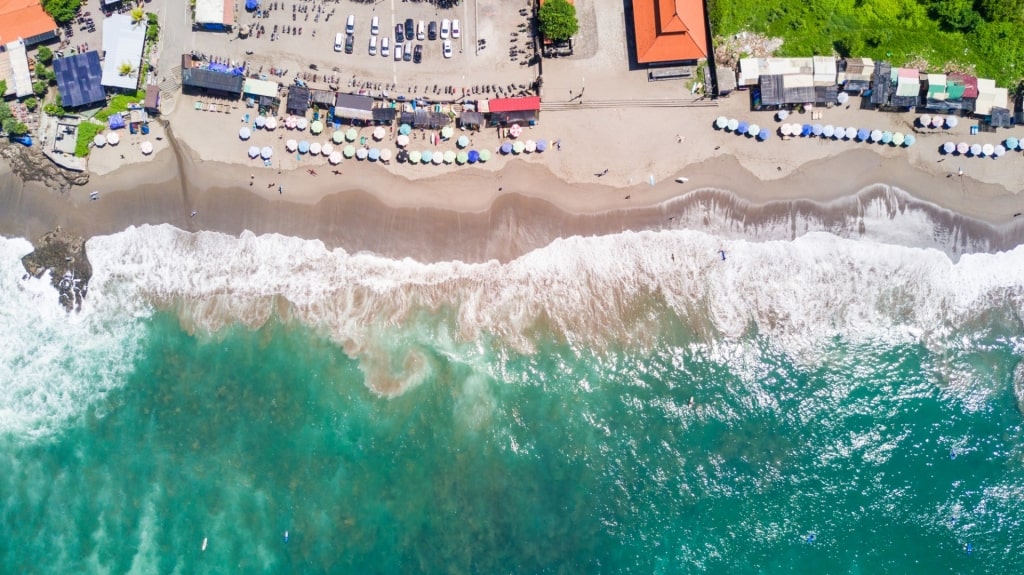
Canggu Beach in Bali, Indonesia
First-time visitors to Indonesia’s most popular island, Bali, are often overwhelmed by the sheer number of possibilities here.
Do you want to cycle among the verdant rice paddies and temples of Ubud? Or browse the morning fish market at Jimbaran? Would you rather hang with the surfers and other boho types in Canggu, home to some of the best beaches in Bali?
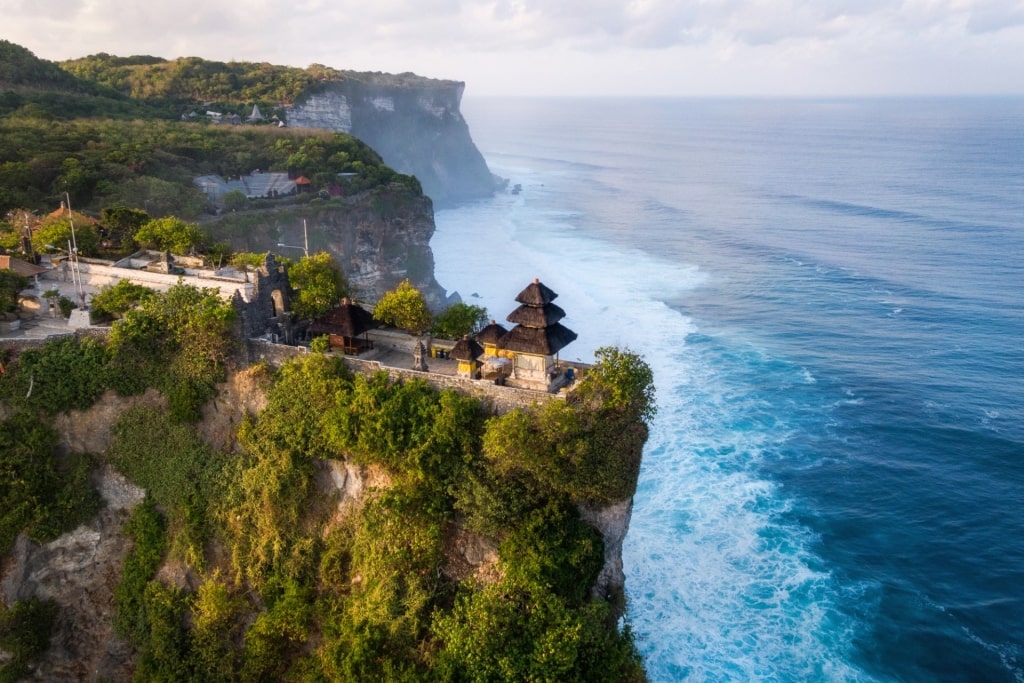
Uluwatu Temple in Bali, Indonesia
The truth is that there are no wrong answers. If you have to pick one spot, however, it’s hard to beat the dramatic cliffs of Uluwatu for natural splendor. One of the best things to do in Bali is to pay a visit to the stunning Uluwatu Temple, an important Hindu shrine, then admire the crashing waves below.
Read: The Ultimate Balinese Food Guide
George Town, Penang, Malaysia
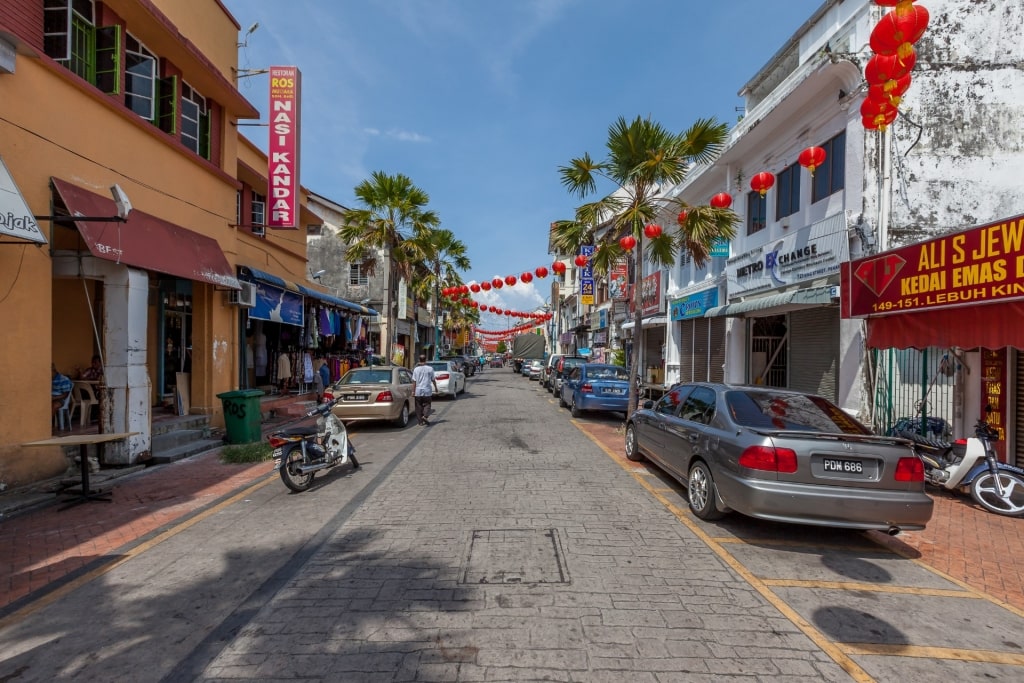
George Town in Penang, Malaysia
The UNESCO-designated historical center of George Town is one of the greatest food towns in all of Southeast Asia.
From morning until night, locals sidle up to street food stalls and shophouse restaurants serving Southeast Asian food, from prawn Hokkien mee, Chinese egg noodles with giant, head-on prawns, to Nyonya laksa, noodle soup with a sumptuous coconut broth, to nasi kandar, rice topped with all manner or curries.
Penang’s dining options mirror the diversity of the local population, which thanks to George Town’s history as a crucial trading port includes Chinese, Malay, and Indian communities, among others.
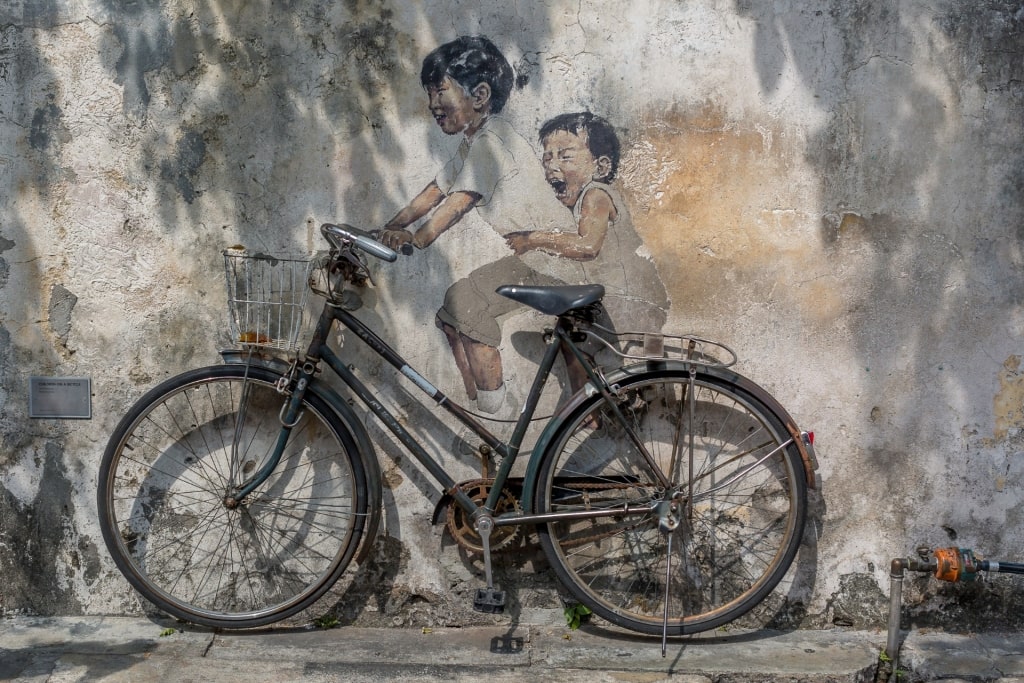
George Town in Penang, Malaysia
Between its superlative eats and its atmospheric colonial architecture—much of which is now decorated with murals—the capital city of Penang is a joy to explore.
Mount Fuji, Japan
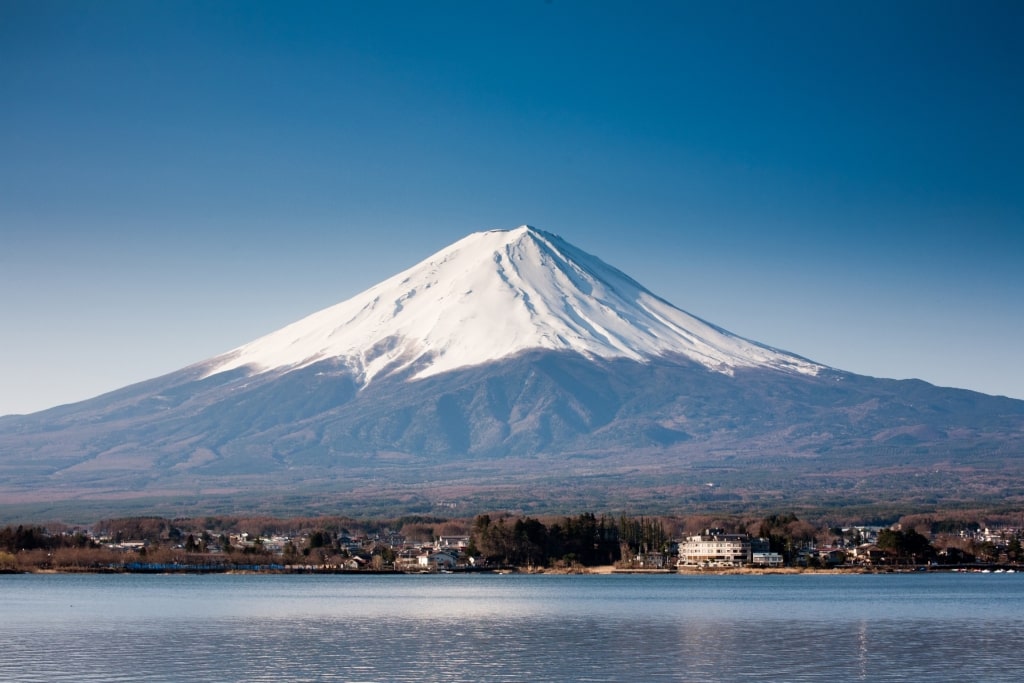
Mount Fuji, Japan
Japan is known for Mount Fuji, an active basaltic stratovolcano roughly 60 miles from Tokyo, which has inspired generations of Japanese painters, poets, and novelists.
Even from a distance, the iconic sloping silhouette is instantly recognizable. At 12,388 feet tall, it looms over the surrounding landscape and is home to some of the best hikes in Japan.
Although hiking to the top of the volcano’s enormous cone is a lengthy affair, it’s easy to appreciate its stature from the ground.
Phuket, Thailand
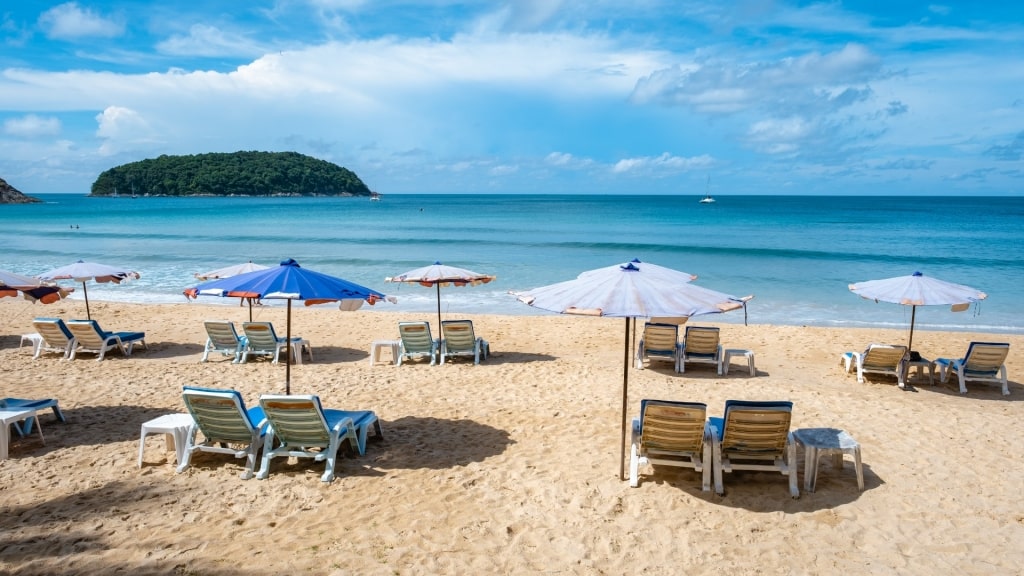
Nai Harn Beach in Phuket, Thailand
Phuket, Thailand’s largest and most-visited island, has a well-earned reputation as a party town. While it’s true that Patong lives up to its name, there are plenty of more serene sides to this multifaceted isle.
Nai Harn Beach, one of the best beaches in Phuket, is a palm-fringed stretch of sand lapped by azure waters, which remains laid-back and lovely.
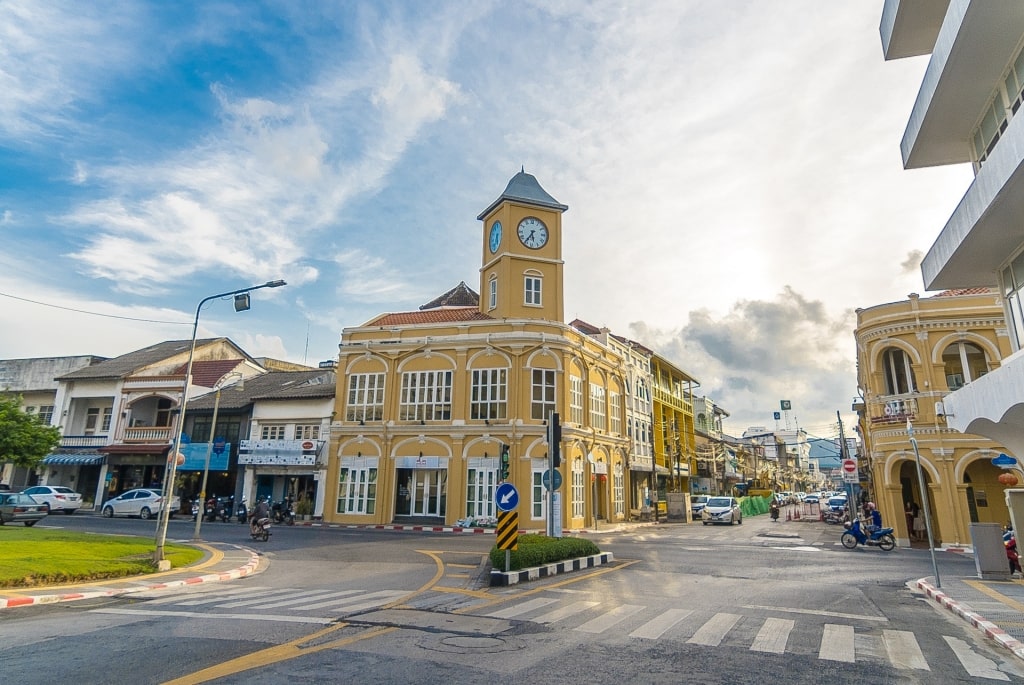
Old Town in Phuket, Thailand
While Phuket is best known as a beach destination, it also happens to have a rich multicultural history. For generations, merchants came here to trade and pick up the locally mined tin.
The Peranakans, sometimes known as the Straights Chinese or Baba-Nyonya, who settled from Malacca to Singapore, had a considerable presence here, as did the Portuguese. Today, visitors can admire the historic Sino-Portuguese architecture in Old Phuket Town while enjoying some very fine seafood.
Read: Best Things to Do in Phuket
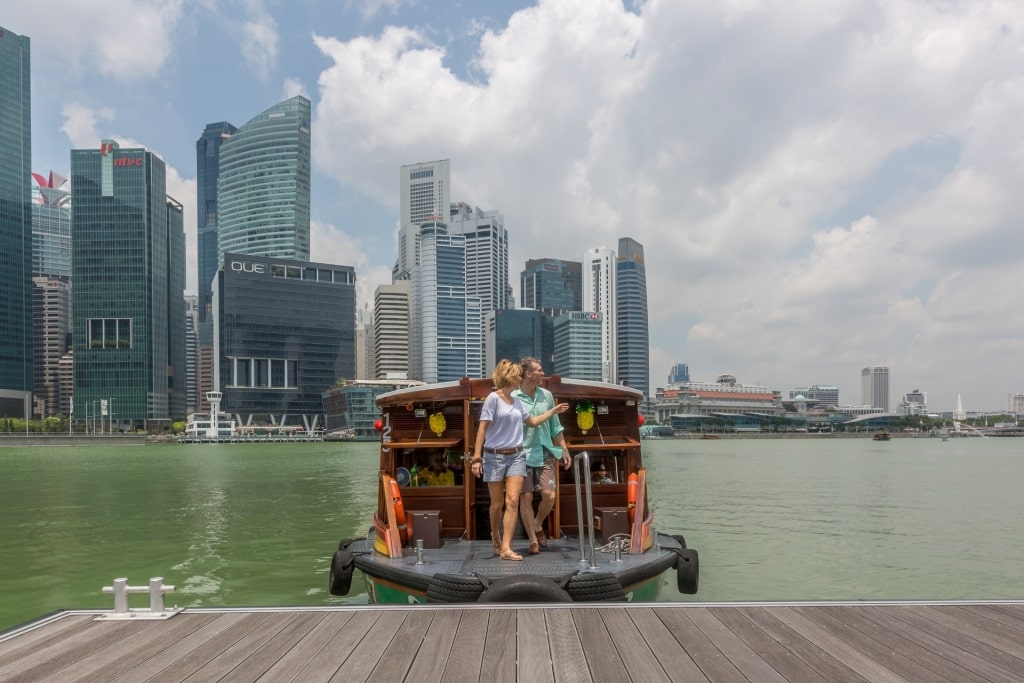
Singapore
There are too many sights to see across the vast Asian continent to ever tackle them all, but a cruise is one of the best ways to experience a wide range on a single trip. Browse our cruises to Asia and plan your next adventure today.
